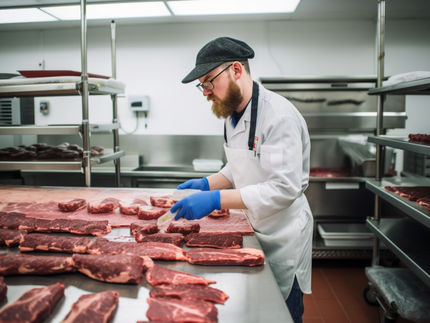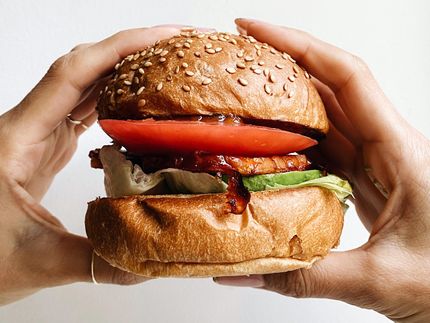Finland makes plant-based meat attractive, with science
Advertisement
The VTT Technical Research Centre of Finland possesses a unique toolbox to develop game-changing innovations for meat alternatives, making it possible to offer real, authentic experiences for consumers. With innovations based on combining cellular agriculture with diverse, locally available crops, food producers can provide authentic, next-generation meat alternatives on an industrial scale.

Finland makes plant-based meat attractive, with science
VTT
VTT, one of Europe’s leading research institutes, has developed a breakthrough scientific approach that could bring sustainable, authentic meat alternatives to carnivores and flexitarians around the globe.
“We use cellular-agriculture-based techniques combined with our long-term expertise working with challenging, plant-based raw materials to transform nutritious, local crops into delicious foodstuffs that offer an identical sensory experience to animal-based meat. Our innovation toolkit allows producers to perfectly recreate the sizzling fat and juicy tenderness of meat like never before,” says Nesli Sözer, Research Professor at VTT.
Key details:
-
VTT’s multi-technique approach allows food producers to turn under-utilised or local plants such as fava beans and sorghum into burgers, steaks, sausages, and more.
With its plant-based, cellular agriculture expertise, VTT has the tools to replicate the building blocks of animal meat, such as proteins and lipids, to create a 100% identical sensory experience, right down to the sizzle of fat in the pan.
This is a sustainable, scalable solution to the problem of meat, using diverse, climate-resistant local crops that can be grown almost anywhere.
VTT’s approach unlocks the high nutritional value of plant-based raw materials that are rarely used in mainstream meat alternative products.
Food producers can leverage these innovations to meet soaring global demand for meat while shoring up food security and resilience.
Meat is a major source of emissions, and meat production tends to be overly centralised and vulnerable to supply chain disruptions. A new, sustainable food system requires a dietary shift towards plant-based proteins.
“In order to solve these challenges, we need plant-based meat that can genuinely satiate demand and that can be scaled in a way that improves food security and nutrition for all”, explains Sözer.
“Consumer acceptance has a key role in the development of feasible business around plant-based protein ingredients for meat alternatives. It’s not enough for something to look like meat. We need nutritional and healthy foods that are indistinguishable from animal-based meat in every way, that allows people everywhere to enjoy the experience of meat, without the guilt,” Sözer continues.
Next-generation meat alternatives poised to breathe life into the market
Although the meat alternatives industry has grown rapidly in previous years, there is still a long journey ahead before plant-based meat can truly gain a foothold the market.
As global demand for meat continues to skyrocket, VTT stands ready to collaborate with food and raw-material producers to accelerate alternative meat innovations and empower them to stay ahead of the curve when it comes to scale, nutrition, and sustainability.
VTT aims at tackling the world’s biggest challenges. Plant-based food, cellular agriculture and agile manufacturing are key areas that can contribute to providing new opportunities for sustainable food systems.
“By combining our experience in plant-based ingredients, food design and cellular agriculture, we can create proof-of-concept of prototypes for tasty, identical meat alternatives that are ready to be scaled up for industrial production. By supporting companies to develop sustainable production processes and products that have broad customer appeal, we can also work together towards a future that is free from food crises,” Sözer concludes.

























































